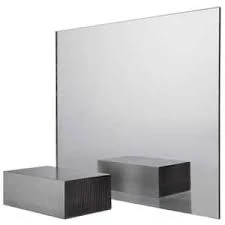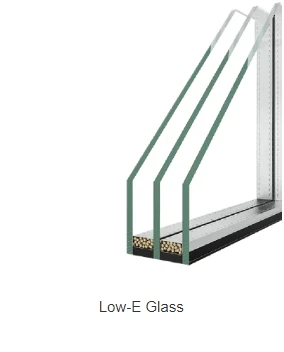Insulated glass units (IGUs) represent a significant advancement in building design, contributing to energy efficiency and indoor comfort. These glass systems are widely adopted in both residential and commercial settings due to their ability to reduce energy costs and enhance thermal insulation. Understanding the cost dynamics of IGUs is vital for architects, homeowners, and sustainability consultants alike.

IGUs are composed of two or more glass panes separated by a spacer and sealed to form a single, airtight unit. The space between the panels is often filled with inert gases, such as argon or krypton, to improve thermal performance. The cost of insulated glass units is influenced by several factors, each adding a layer of complexity but also opportunity for optimization.
The primary cost driver of IGUs is the size and thickness of the glass panes. Larger and thicker panes offer better insulation and noise reduction, which naturally comes at a higher price. However, investing in thicker panes can result in long-term savings through reduced energy bills and lower maintenance costs over time.

The choice of gas infill also impacts the cost. While argon-filled IGUs are common due to their cost-effectiveness and good thermal performance, krypton offers superior insulation but at a higher price. The selection should depend on climate conditions and budget, with colder regions benefiting more from the enhanced insulation provided by krypton.
Another consideration is the type of glass coating used. Low-emissivity (Low-E) coatings reflect infrared light, keeping heat inside during the winter and outside during the summer. Though adding coatings raises the initial cost of IGUs, they significantly lower heating and cooling expenses, making them a wise investment for eco-conscious buildings.
Frame material is another factor contributing to the overall cost of IGUs. While aluminum frames are durable and cost-effective, they can conduct heat, reducing the insulation efficiency. Alternatives such as vinyl, wood, or composite frames offer better insulation properties but may require a larger upfront investment. The choice of frame materials should align with the building's design requirements and local climate considerations.
insulated glass unit cost
Manufacturing processes and customization options also affect pricing. Custom IGUs designed to fit unique specifications or with specific aesthetic enhancements will cost more. However, they provide opportunities for creative integration into building designs, enhancing both functionality and architecture.
Transporting and installing IGUs adds to the expense as well. Due to their fragility and weight, proper transportation is crucial to prevent damage, which can incur additional replacement costs. Installation must be handled by professionals to ensure airtight sealing and optimal performance, contributing further to the upfront cost.
Despite these variables,
the return on investment for insulated glass units is substantial. Many building projects recover the initial cost outlay through energy savings within five to seven years. Additionally, buildings with IGUs often enjoy increased market value thanks to their energy efficiency ratings and indoor comfort standards.
Advancements in technology are continually reducing the cost of IGUs, while improving their performance. Innovative spacers made from non-metal materials, dynamic glazing technology, and smart glass systems that adjust transparency based on lighting conditions are progressively being integrated into the production of IGUs, offering enhanced benefits at competitive prices.
Considering these perspectives on insulated glass unit costs highlights the importance of understanding the specific needs of a building project. A careful analysis of the factors involved allows for smart decision-making that balances cost, performance, and aesthetic value. In a world increasingly mindful of energy consumption and sustainability, IGUs provide a trusted and authoritative choice for building designers and owners aiming for excellence in environmental responsibility and economic prudence.



